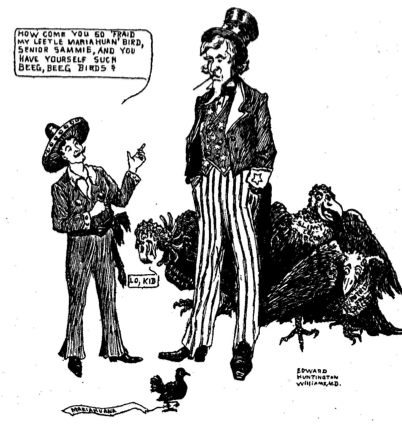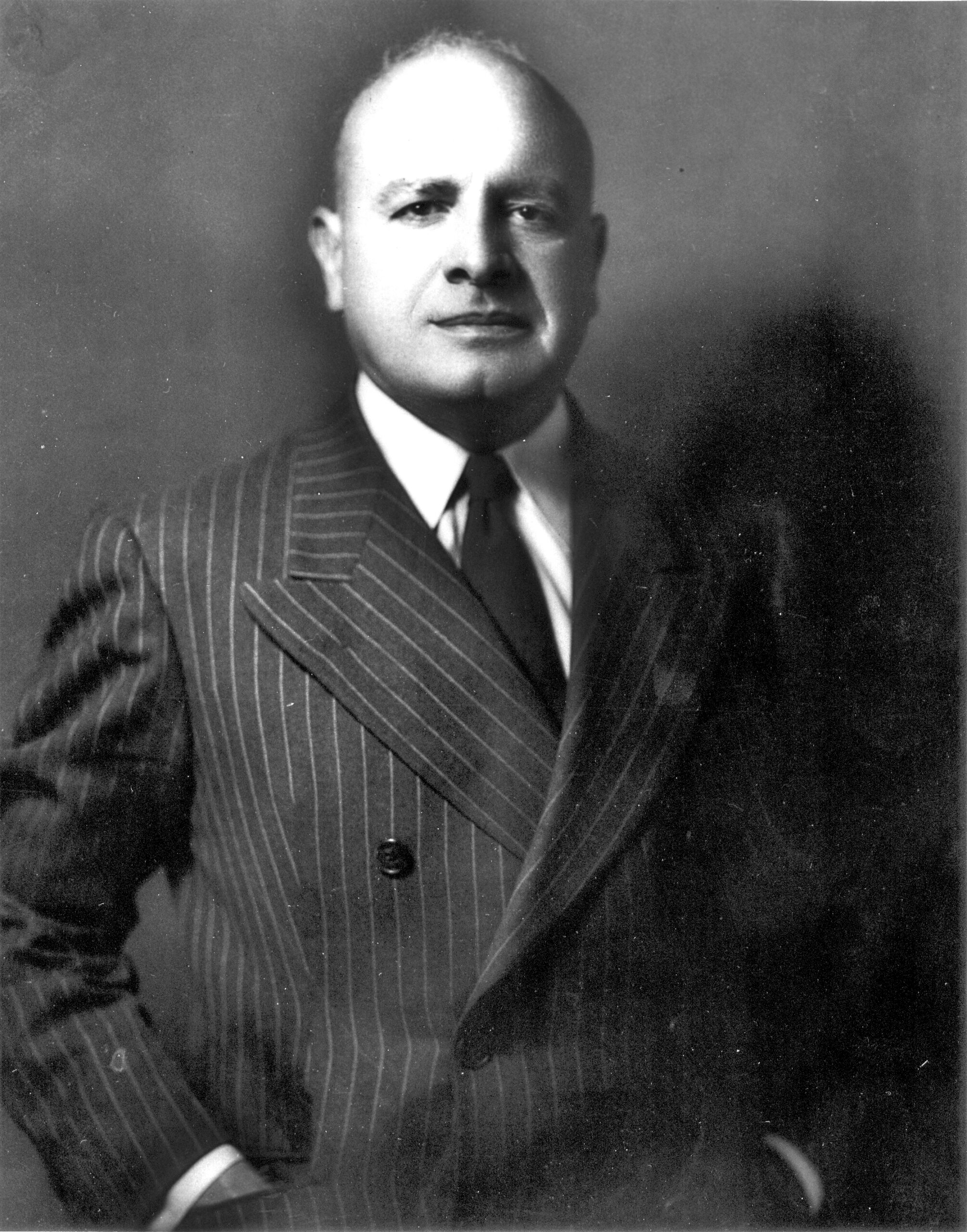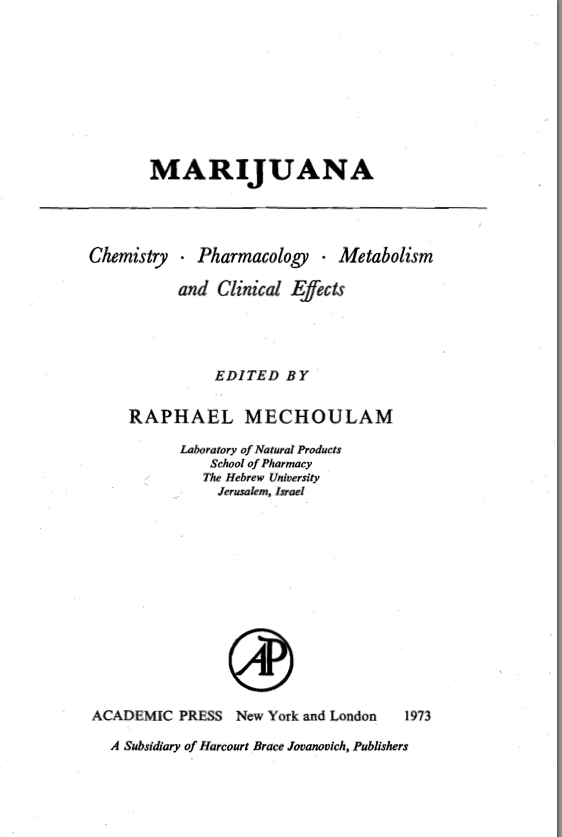December 11, 2014 This is a case for the legendary San Francisco detective Michael Aldrich. Or a budding historian in need of a thesis topic.
In a file of “Maybe Use Graphics” I came upon a page from a booklet called “Marihuana —New Opportunity for the Racketeer.” I don’t know who hastily scanned and sent it to us —only one page was wholly legible. On the title page I could make out the author’s name: Edward Huntington Williams, MD.
The cartoon, which is signed by Williams, is offensie, given that gringos are not twice as tall as Mexicanos; but the content is right on. The diminutive but stylishly dressed Mexican is saying to a Uncle Sam: “How come you so ‘fraid my leetle mariahuan’ Bird, Senior Sammie, And you have yourself such beeg, beeg birds.” Behind Uncle Sam are three big vultures, one saying “Lo, kid,” to the harmless little mariahuan’ bird. There may be some text on the vultures’ chests but I can’t make it out.
Evidently at the time marijuana prohibition was being imposed, Edward Huntington Williams, MD, was trying to alert the American people to its terrible implications.
First up on a Williams Google search is a review of a book he wrote in 1914 —the year the Harrison Act prohibited doctors from prescribing cocaine and heroin— called “The Alcohol Question.” The review, which appeared in the American Journal of Nursing, identifies the author as “Formerly Associate Professor of Pathology, State University of Iowa, and Assistant Physician in the New York State Hospital Service; Author of “the Walled City,” “Increasing Your Mental Efficiency,” etc., and Joint-Author of “The Wonders of Science in Modern Life.”
Williams, according to the review, foresaw “that prohibitory legislation is prone to increase illicit manufacture of liquor of the lowest quality.” He also warned that banning alcohol would drive people to cocaine and morphine addiction. The implication is that Dr. Williams distinguished between addictive “hard” and relatively benign “soft” drugs.
The anonymous reviewer of The Alcohol Question ends with a jarring reference to “race betterment,” which should remind us —if anyone needs reminding— that White Supremacy and the Temperance Movement were intertwined. And still are, in a way.






